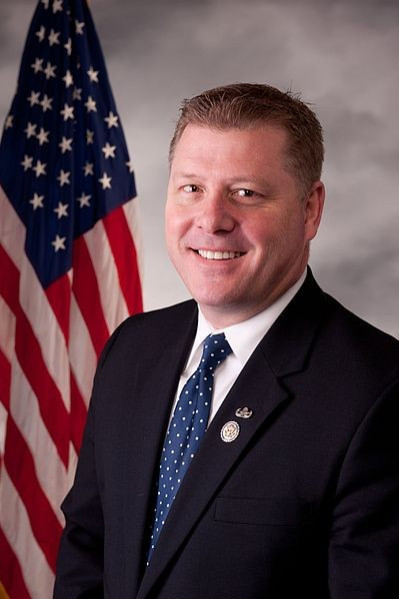House Republican Rick Crawford Breaks With Party to Propose 5% Millionaires Surtax

A freshman congressman who was elected in the Tea Party wave of 2010 is the first Republican member of Congress to voice support for a millionaires' surtax as part of a broader fiscal responsibility package.
Rep. Rick Crawford, R-Ark. -- who became the first Republican elected to represent Arkansas' First Congressional District since Reconstruction when he won his seat in 2010 -- is expected to introduce legislation next week that would impose an additional 5 percent tax on individual incomes exceeding $1 million a year.
The legislation, known as The Shared Responsibility in Preserving America's Future Act, would require the passage of a balanced-budget amendment by Congress in exchange for the surtax. While President Obama and the Democratic Party have previously pushed for a considerably smaller 1 percent surtax, efforts to pass such legislation have been continuously blocked by congressional Republicans.
Extreme partisan politics [have] kept Republicans and Democrats from addressing this problem. If we are going to take financial calamity off the table, both parties will need to come together, Crawford said in a statement released Thursday. Republicans have long championed a balanced budget amendment to force the federal government to live within its means. Democrats have pushed for new taxes on millionaires to address our debt. This reasonable approach can be the beginning of a new era in Washington where Congress puts the needs of the country first and stops burdening future generations of Americans with immense debt.
Obama attempted to enact a rule that would raise revenue by similarly imposing a 1.9 percent surtax on individual incomes over $1 million a year, a move that the White House expected could slash the federal budget deficit by $1.5 trillion over 10 years. The provision, proposed late last year, was ultimately dropped from payroll-tax-extension legislation in December.
In February, Sen. Sheldon Whitehouse, (D-R.I.), echoed the call for the so-called Buffett Rule by introducing legislation that would require individuals making $1 million or more per year to pay a 30 percent tax rate on their income.
Republicans have adamantly pushed for policies that would tackle the nation's $15 trillion debt by methodically slashing government programs and public aid in the name of promoting fiscal responsibility, all without raising federal income taxes. GOP heavyweights -- from party leadership to freshman House members -- have scoffed at Obama's Buffet tax proposal, arguing that raising taxes on the nation's top earners will ultimately stifle job creation and economic growth.
The resistance to tax increases was codified with the advent of Grover Norquist's Taxpayer Protection Pledge, signed by lawmakers who vow to oppose any and all efforts to increase the marginal income tax rate for individuals and businesses, and who oppose the elimination of tax deductions or tax credits unless they are matched by reduced tax rates.
Among the 112th Congress, 238 Representatives and 41 Senators, including three Democrats, have signed the pledge.
Crawford himself has signed the pledge, the product of the conservative-leaning Norquist-led Americans For Tax Reform. A spokesman for Crawford did not immediately return a request for comment.
© Copyright IBTimes 2025. All rights reserved.





















